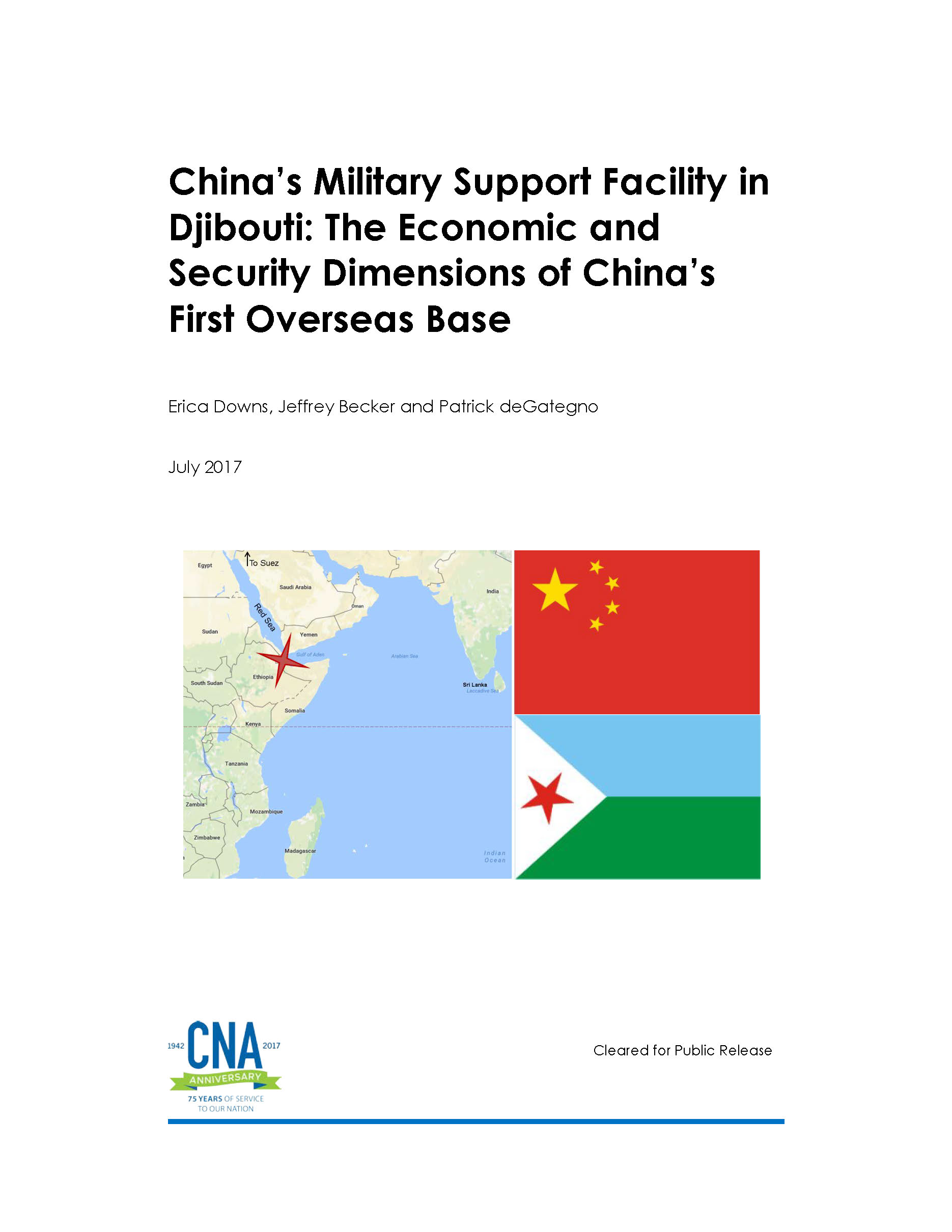Key findings
China’s establishment of an overseas military facility in Djibouti marks a fundamental shift in China’s foreign and security policy.
- China’s leaders have long used its lack of overseas military facilities as a means to differentiate its economic expansion from that of Western countries and have often equated an overseas military presence with neo-colonialism and American “hegemony.”
- Beginning with the 2008 decision to participate in Gulf of Aden counterpiracy operations, Beijing has increasingly involved its military in its pursuit of China’s national interests in the region.
- The establishment of this military support facility indicates that Beijing sees a long-term role for its military in protecting Chinese interests overseas.
China and Djibouti’s relationship has strengthened in recent years because the two countries have complementary economic and security ambitions.
- Djibouti is a small, mostly barren country on the Horn of Africa. Geography is its main source of competitive advantage.
- It is a comparatively stable country in an otherwise volatile region.
- It occupies a strategically important position next to the Bab el- Mandeb, a critical maritime chokepoint.
- It serves as the main port for landlocked Ethiopia, East Africa’s largest and fastest growing economy.
- It has sought to leverage its geography to generate currency by leasing land to multiple foreign militaries.
- Djibouti aspires to be a commercial hub—the Singapore of East Africa. To achieve this objective, it requires a dramatic expansion of its infrastructure.
- Djibouti has sought financing for large infrastructure projects from various banks and international financial institutions—to include Chinese banks and state-owned enterprises.
- China is seeking opportunities to expand its presence in East Africa for several reasons. Specifically, it wants to:
- Find new markets for construction companies as demand for infrastructure projects within China slows
- Showcase Chinese standards and technologies in overseas projects to attract new business opportunities
- Improve China’s military expeditionary capabilities in order to better safeguard its citizens and assets in the region
- Support President Xi Jinping’s “One Belt, One Road” economic initiative.
DISTRIBUTION STATEMENT A. Approved for public release: distribution unlimited. PUBLIC RELEASE. 6/15/2017
Details
- Pages: 84
- Document Number: DIM-2017-U-015308-Final3
- Publication Date: 6/5/2017
